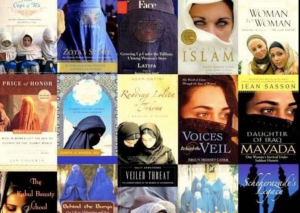There’s been an interesting debate over on HAhmed.com between Imam W.D. Mohammed’s defenders and his detractors.
Below is a comment I left, in reaction to Swarth Moor’s harsh pronouncements (who also left a comment here, to which I intend to reply soon, insha’Allah).
W.D. Mohammed: A Witness for True Islam | HAhmed.com
I don’t at all agree with Swarth Moor’s conclusions, but I concede that these are understandable concerns for many given the gravity of the specifical [sic!] credal matters involved and how simplistically Islamic tradition is often presented. There’s no question that WDM was a maverick in some of his pronouncements and that he advocated reforms to which many traditionalists object strenuously.
For some, that automatically disqualifies him (and many, many others who are widely respected) as a Muslim leader. I see it differently in light of how many woefully wrongheaded ideas and ideologies have at times been promoted by impeccably traditional scholars. Assuming Swarth Moor’s critique to have some validity for the sake of conversation, WDM was by no means the only Muslim leader to arguably make some mistakes on aqidah (e.g., the all out assault on all forms of Tasawwuf that many traditionally trained scholars either personally waged or cooperated with until recently). While he may indeed have been “guilty” of modernism (which is in the eye of the beholder) in some respects–again, a rather common vice today; are we suddenly Khawarij?–he certainly never advocated dead-end interpretations and ideologies that paralyzed Muslims’ intellectually or politically, much less stoked takfir and needless hatred of non-Muslims, as did some arguably “traditional” scholars. He didn’t have to reinvent himself after 9/11 to be relevant.
When his ideas are examined, he should be extended the same common courtesy that we extend scholars on the other, equally misunderstood end of the spectrum. And an attempt should be made to understand how his ideas fit into his community’s context.
However, I have to lament how these sentiments are invariably expressed in the haughtiest and most biased, unobjective manner. What ever happened to “Allahu alim”? Just once I want to hear a criticism of this nature presented with some humility and an acknowledgment that *the critic* might be mistaken in some of his assumptions, whether merely about the target of his barbs or even the proper understanding of foundations of the Deen itself.
No doubt true scholars are able to answer many of these questions definitively, but they’re not us. It doesn’t follow that *follower* understands these things with that same degree certainty and is therefore entitled to make such categorical pronouncements (much less swagger about). When you’re criticizing a prominent leader you ought to do it with a certain amount of caution and circumspection. Even if you’re right, they’ve probably earned that courtesy by dint of service to Islam and the community.
My original intention was to make a totally different comment about the parallels between the preservation of Islam among African-Americans and Muslims in former Soviet Bloc nations, but that’ll have to be another time.











